From razing New York City to torching Louisiana plantations, these slave rebellions paved the way for the Civil War, and the eventual abolition of slavery.
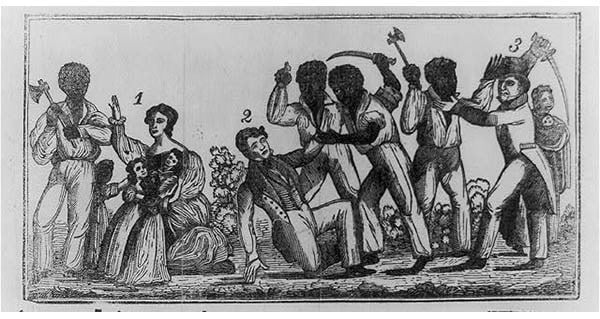
Scenes from Nat Turner’s 1831 Rebellion — this rebellion is well known, but many lesser-known slave rebellions preceded it. Image Source: Library of Congress
Over 300 years ago, a group of black slaves staged an uprising in New York City. The amount of insurrectionists is unclear, but on April 6, 1712, they set fire to a building on Maiden Lane, near Broadway. When the white colonists came to put out the fire, the insurrectionists attacked them, killing nine and injuring eight.
The rebellion resulted in the arrest of 70 blacks, and the prosecution of 43. 14 were (surprisingly, for the time) acquitted, whereas 20 were hanged, and three were burned at the stake.
The results of the rebellion point to failure, but that didn’t stop other groups of black slaves from attempting insurrections of their own. Here are four memorable examples.
Slave Rebellions: The Gloucester County Conspiracy
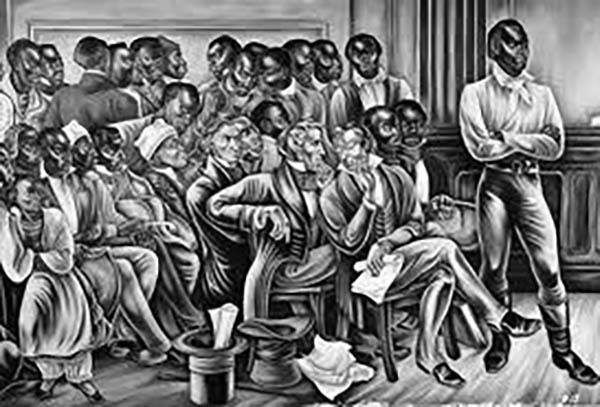
A depiction of the Gloucester County conspiracy.
Only 57 years after the colony of Virginia was founded, and centuries before the modern civil rights movement, black slaves, indigenous Americans, and white indentured servants banded together to fight against their collective, inhumane treatment — an event which some have called the “first serious conspiracy involving enslaved blacks.”
At the time, all three groups were used by white colonists to farm tobacco, but only in Gloucester County — a seaside community near modern-day Newport News — did anyone take action against the colonists.
The date for the rebellion was set for September 1, 1663. The conspirators met in secrecy beforehand, planning to gather weapons and a drum, then march through town to the Royal Governor’s mansion to demand their freedom. If RG Sir William Berkeley was not willing to grant it, the group would use force to ensure their success.
Unfortunately, a black indentured servant named John Birkenhead informed on the group. As a reward, he received five thousand pounds of tobacco, but also his freedom, the very thing the group were fighting for.
The revolt never came to fruition, and an unknown number of people were tried and executed for treason. Their heads were removed and placed on chimney tops to discourage others from attempting similar action, a gruesome testament to oppressive inequality.
The New York Conspiracy
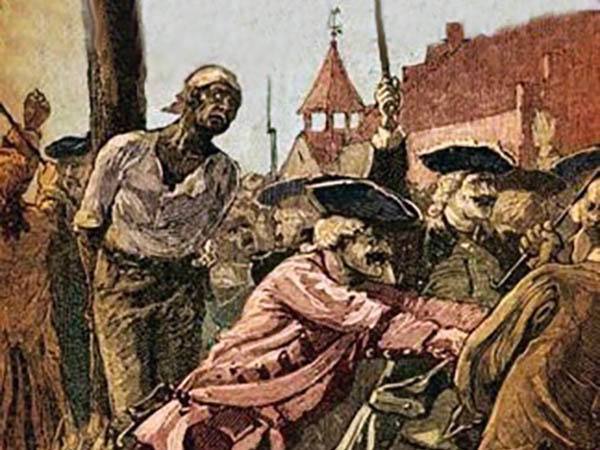
A depiction of the New York Conspiracy. Image Source: Wikimedia Commons
21 years after the April 6th New York City uprising, another of American history’s most important slave rebellions began to form. While certain elements of this story are disputed by historians, the revolt — another collaboration between black slaves and poor whites — was known as the Panic of New York and was meant to destroy New York City with a series of fires, started in secret. At the time, New York had the second-highest amount of slaves in the colonies: one for every five people.
An economic depression the previous winter had depleted food and fuel supplies, further sowing discontent among the poor and enslaved, many of whom were in danger of freezing to death. Tensions ran high until a war with Cuba resulted in fewer military forces in the city, at which point, the oppressed made their move.
In March and April of 1741, 13 fires were lit throughout Lower Manhattan, damaging or destroying Fort George and the governor’s mansion. While fires were always a likelihood in the city, thanks to the frame buildings and the number of wood-burning stoves and fireplaces, some among the elite began to suspect that the fires were planned by the poor.
After one warehouse fire, a 16-year-old indentured servant named Mary Burton was arrested while fleeing the scene. Burton quickly gave up the names of her co-conspirators, resulting in 175 arrests, 17 people being burned alive, and 18 hanged. The supposed leaders of the revolt were also gibbetted to deter future rioters.
Slave Rebellions: Gabriel’s Rebellion
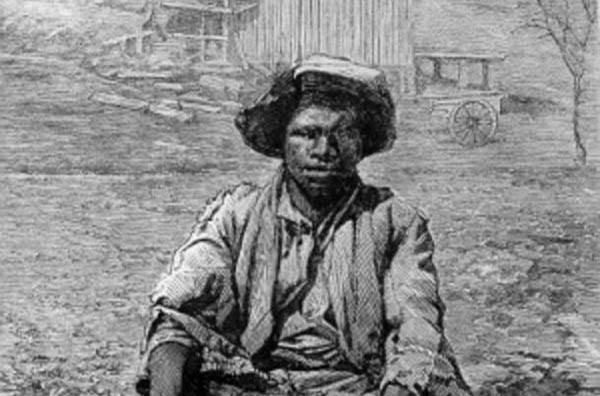
Gabriel Prosser, the leader of Gabriel’s Rebellion.
In the spring of 1800, Gabriel Prosser and his brother Martin began to organize a rebellion in the area of Richmond, Virginia. Gabriel’s opposition to slavery was heavily influenced by the Declaration of Independence, which of course states that all men are created equal.
Martin was a preacher, and he held secret meetings for slaves where he likened their fight for freedom to the story of the Israelites escaping Egypt. Together, they made a case for open rebellion.
The plan was to march into Richmond, set fire to the city, kidnap the governor, and kill all the white residents except the Quakers, Methodists and French (the religious sects were predominantly opposed to slavery and the French were then at war with the United States).
It was not to be, though. Rain postponed the rebellion, and before it could take place, slave informers told their owners of the idea, which led to the militia-capture of Gabriel, Martin, and some 25 of their co-conspirators.
All were publicly hanged as an example to others, and state legislatures passed laws in response, prohibiting the education of free blacks, the ability of slaves to assemble, and the ability of slave owners to hire out their slaves. They hoped this would curb further insurrections: They were wrong.
The German Coast Uprising
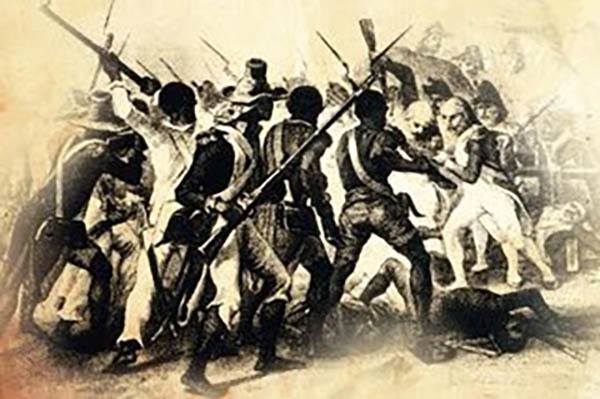
Hundreds gathered in revolt in the 1811 German Coast Uprising. Image Source: University of North Carolina
11 years later, along the German Coast of Louisiana, black slaves were taking a leaf out of the book of the nearby Haitians, who had recently fought and defeated the French and Spanish to form the African Republic.
Charles Deslondes, a slave who had been brought to Louisiana from Haiti, was a principal figure in what has been called the largest slave insurgency in U.S. history. He was determined to help others in his position to realize that they, too, could gain their freedom.
Armed with knives, axes, and guns, some 200-500 blacks revolted on January 8, 1811. The 20-mile march began at Manuel Andry’s plantation, next door to where Deslondes had been a slave driver. Andry was injured and his son was killed before the group began to move toward New Orleans.
The insurgents, whose numbers grew by the minute, burned multiple plantations and mills along the way. Inevitably, the militia was once again employed, and a skirmish broke out at the Jacques Fortier plantation in St. Charles Parish, 24 miles from New Orleans.
66 revolutionaries were killed and 75 were captured. Of those 75, 18 were shot to death and decapitated. Their heads were put on poles outside nearby plantations to terrify others into submission.
50 years later, the Civil War began, and four years after that, the North emerged victorious, effectively ending slavery. The many collaborations between poor whites and black slaves had set a precedent for a final stand, although tragically, the road to racial equality, paved with slave rebellions, required a terrible, violent beginning.
After this look at historic American slave rebellions, read powerful letters written by former slaves to their masters. Then, read up on Toussaint L’Ouverture, the slave who led a revolt and defeated Napoleon.





